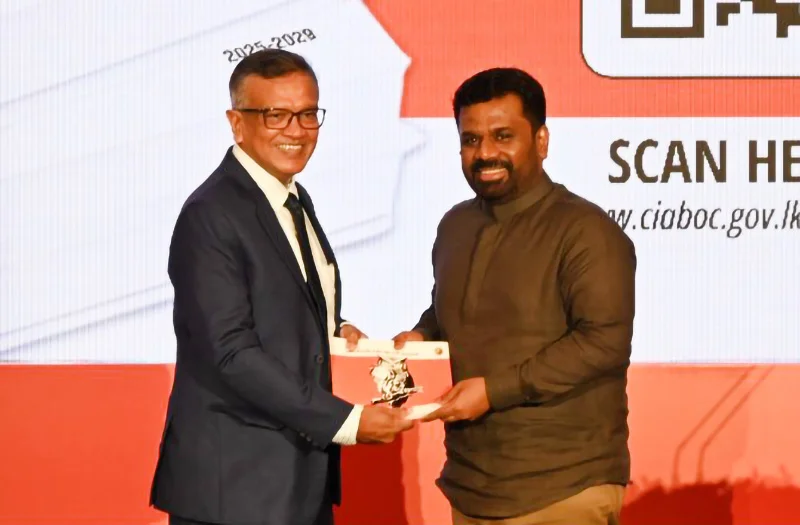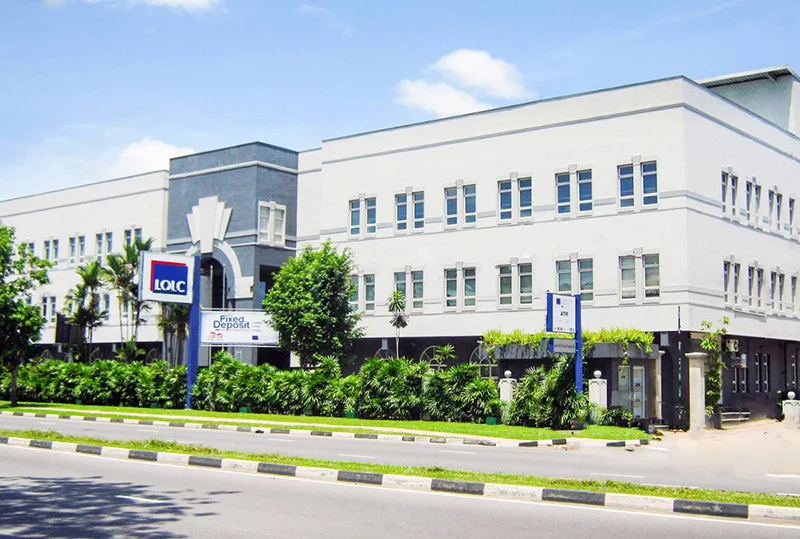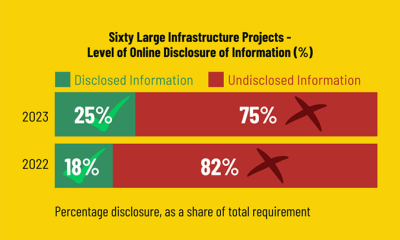Business
Research, insights add value to Circular Economy Workshop for apparel sector

In response to the multifaceted challenges posed by resource scarcity, environmental impacts and economic concerns, Monash University in partnership with the Joint Apparel Association Forum (JAAF) initiated an insightful Workshop on the Circular Economy (CE) and its profound implications for the apparel industry. The workshop, held recently, served as a catalyst for a collaborative dialogue among prominent apparel manufacturers, researchers and stakeholders.
The central theme underscored the imperative transition from a linear “take-make-use-dispose” business model to a circular one characterized by circular economic flows. This paradigm shift, embedded in the CE ethos, aims to minimise resource inputs and emissions across organizations and their supply networks. The CE approach places a strong emphasis on slowing, narrowing and closing resource loops, thereby enhancing efficiency and significantly reducing waste. Notably, CE practices offer a sustainable and environmentally conscious alternative to traditional production methods.
“”Embracing a circular economy is no longer optional; it’s imperative,” emphasized Professor Amrik Sohal from the Department of Management at Monash Business School, Monash University, a guest speaker at the Workshop. “Sri Lankan companies have been instrumental in driving this change. Yet, the journey to a circular economy, especially for forward-thinking enterprises is challenging. A collective dialogue on adopting circular economy practices is particularly crucial for the apparel industry, a major contributor to global waste and environmental impact.”
The workshop served as a unique platform that brought together leading apparel manufacturers and researchers to exchange insights, share current CE practices and discuss future plans for advancing both theoretical and practical knowledge related to CE in the Sri Lankan Apparel Industry.
This collaborative effort gains particular relevance and timeliness in light of the European Union’s Corporate Sustainability Reporting Directive (CSRD). Legally enacted in 2023, the CSRD is set to commence applicability for larger corporations in the year 2024. The workshop’s discussions were significantly intertwined with the objectives outlined in the CSRD, particularly addressing the EU’s ambitious goal to transition towards more circular apparel production practices by the year 2030.
Operations & Supply Chain Strategy at Loughborough University Professor Jan Godsell opined that, “Apparel companies must redefine their business models, embracing sustainability and ethical practices to navigate the evolving landscape. In the face of these challenges, the future belongs to those who innovate and transform, aligning with evolving regulatory landscape in the EU. We are happy to partner to take this path forward.”
The Workshop organized by Monash University Australia, garnered support from the Made Smarter Innovation and UKRI: ESRC funded InterAct initiative. Local partnerships were instrumental with JAAF, Moratuwa University and the Postgraduate Institute of Management (PIM) actively contributing to the success of the workshop.
The JAAF-led Workshop was a testament to the industry’s commitment to embracing Circular Economy principles. By fostering collaboration, sharing insights and addressing challenges head-on, the groundwork was laid for a more sustainable and circular future for the apparel industry in Sri Lanka and beyond. The Workshop’s outcomes are expected to resonate as a guiding force for the industry’s evolution towards a more environmentally conscious and economically viable Circular Economy.
Business
National Anti-Corruption Action Plan launched with focus on economic recovery

In a decisive move to stabilize Sri Lanka’s economy and rebuild investor confidence, the Commission to Investigate Allegations of Bribery and Corruption (CIABOC) yesterday launched the National Anti-Corruption Action Plan (NACAP) 2025–2029, with a clear focus on promoting transparency, accountability and economic governance.
Developed with the support of the United Nations Development Programme (UNDP) and funded by the government of Japan—contributing nearly USD 900,000—the initiative aims to address corruption as a critical economic barrier.
The launch, attended by President Anura Kumara Dissanayake, Chief Justice Murudu Fernando PC, and high-level diplomatic and institutional representatives, signals a shift in Sri Lanka’s economic reform narrative. The NACAP is seen not just as a governance tool but as an economic recovery strategy designed to attract foreign investment, improve public finance management and rebuild public trust.
R.S.A. Dissanayake, Director General of CIABOC, noted that corruption, “is more than a legal issue—it is an economic cancer that stifles innovation, distorts markets and deters foreign direct investment.” The establishment of Internal Affairs Units (IAUs) within government institutions is expected to bring internal oversight to public spending and performance, improving the efficiency of state services.
Japanese ambassador Akio Isomata stressed that eliminating corruption is essential for Sri Lanka to regain global investor confidence. “Transparency and good governance are fundamental pillars for sustainable economic development, he said. “For Sri Lanka to attract foreign investment and achieve long-term growth, the effective implementation of this Action Plan is crucial.”
Echoing this, UNDP Resident Representative Azusa Kubota highlighted the importance of aligning governance with economic goals. “The NACAP is a roadmap for transforming Sri Lanka’s economic governance, she said. “It will make corruption visible, measurable, and actionable.”
The NACAP is built on four strategic pillars—Preventive Measures, Institutional Strengthening & Enforcement, Education, and Law & Policy Reform—targeting nine priority areas. These include streamlining state enterprise management, modernizing financial crimes investigation and integrating anti-corruption education into economic policymaking.
The implementation timeline is designed with a phased approach: short-term stabilization, medium-term reform and long-term transformation—ensuring consistent progress toward a more accountable and economically resilient state.
“Corruption ends here. The responsibility of eradicating bribery and corruption will not be passed on to the next generation — it will be resolved by our government today, President Anura Kumara Dissanayake said.
The President stressed it marks a turning point in Sri Lanka’s history. “With the launch of the National Anti-Corruption Action Plan 2025–2029, we are drawing a bold line in the sand. No longer will the fight against corruption be tangled in politics or postponed for the future. Public officials now have six months to bring transparency and integrity to their institutions. After May, the law will act decisively and without exception. This is not just policy — it’s a promise. A new era of accountability has begun and it begins with us.”
By Ifham Nizam
Business
Verdant Capital doubles down: $13.5m now powering LOLC Africa’s MSME expansion

Verdant Capital invests $4.5M more in LOLC Africa, expanding MSME lending across 10 countries and deepening financial inclusion efforts continent-wide.
Verdant Capital has announced that its Verdant Capital Hybrid Fund (the “Fund”) has completed an additional investment of USD 4.5 million in LOLC Africa Singapore Limited (“LOLC Africa”). This investment brings the total investment in LOLC Africa to USD 13.5 million. This follows the initial investment of USD 9 million in LOLC Africa, completed in June 2023. Both investments are structured as holding company loans, and they are being directed towards LOLC Africa’s operating lending subsidiaries in Zambia, Rwanda, Egypt, Kenya, Tanzania, Nigeria, Malawi, Zimbabwe, Ghana, and the Democratic Republic of Congo.
Founded in 1980 in Sri Lanka, LOLC entered the African continent in 2018. Verdant Capital Hybrid Fund is the first external investor in LOLC Africa’s operations, reflecting the Fund’s catalytic investment approach. These investments are driving the expansion of LOLC Africa’s micro, small and medium enterprises (MSMEs) financing footprint across the continent. Additionally, the Fund’s Technical Assistance Facility (TAF), has offered financial support for LOLC Africa’s Social Ratings and Client Protection Pre-Certifications for its subsidiaries in Zambia and Egypt, with further Technical Assistance initiatives in the pipeline.
Business
HNBA’s advisor & partnership channels drive 26% growth

HNB Assurance PLC (HNBA) delivered another year of outstanding financial performance, securing a 7.5% market share and moving a step closer to achieving its ambitious target of 10% market share by 2026. This success was a result of the company’s well-structured strategies, focused on sustainable growth in an increasingly competitive landscape, which yielded impressive results, with its Gross Written Premium (GWP) growing by 26% compared to the previous year.
Over the past four years, HNBA has maintained an average growth rate of 26%, consistently outperforming the industry. A key element of HNBA’s approach has been prioritizing distinctive, value-driven products over high-volume, lower-margin offerings. This strategy has allowed the company to cater to a broader customer base, ensuring inclusivity while maintaining the competitiveness and relevance of its product portfolio
In terms of growth, HNBA’s proactive investment strategy resulted in an 8% growth in investment income, reaching Rs. 6.9 Bn, while Funds Under Management saw a 26% increase. HNBA paid net benefits and claims totaling Rs. 2.9 Bn. The total assets of the company expanded by 24% to Rs. 53.4 Bn, primarily driven by increased financial investments. Additionally, total Life Insurance contract liabilities grew by 25% to Rs. 38.6 Bn, following a surplus transfer of Rs. 1.3 Bn to shareholders.
-

 Business4 days ago
Business4 days agoColombo Coffee wins coveted management awards
-

 Business6 days ago
Business6 days agoDaraz Sri Lanka ushers in the New Year with 4.4 Avurudu Wasi Pro Max – Sri Lanka’s biggest online Avurudu sale
-

 Features5 days ago
Features5 days agoStarlink in the Global South
-

 Business7 days ago
Business7 days agoStrengthening SDG integration into provincial planning and development process
-

 Business6 days ago
Business6 days agoNew SL Sovereign Bonds win foreign investor confidence
-

 Features2 days ago
Features2 days agoSri Lanka’s Foreign Policy amid Geopolitical Transformations: 1990-2024 – Part III
-

 Features5 days ago
Features5 days agoModi’s Sri Lanka Sojourn
-

 Midweek Review2 days ago
Midweek Review2 days agoInequality is killing the Middle Class


















